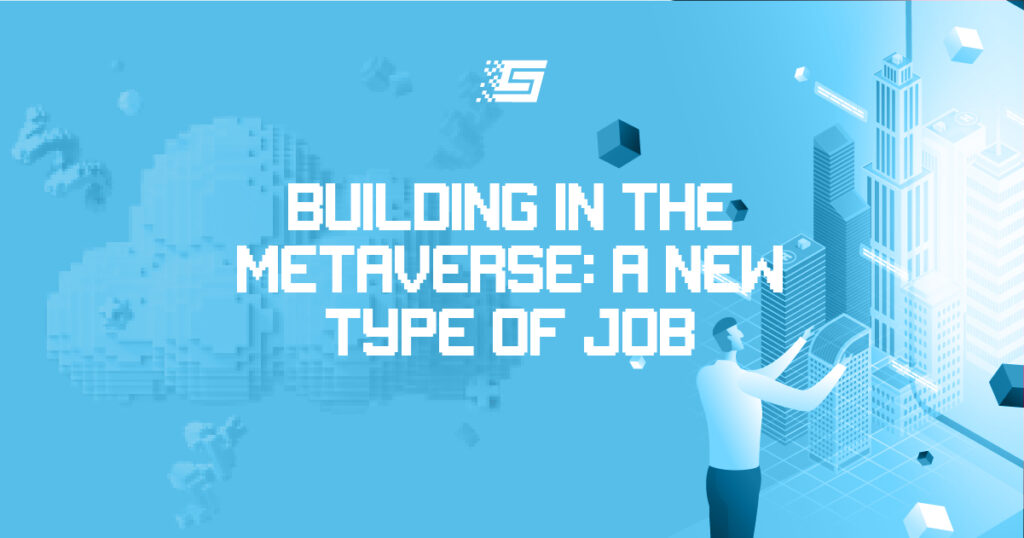Metaverse: Origins & Implications
The metaverse represents a network of 3D virtual worlds, focusing on social connection.
Metaverse development is regularly linked to advancing technology such as virtual reality, now heavily influenced by Web3, a decentralized iteration of the internet.
Web3 and the metaverse often appear as buzzwords for exaggerating the development of various related technologies and public relation projects.
The Concept’s Beginnings
In futurism and science fiction, the metaverse described a hypothetical iteration of the internet as a universal, immersive virtual world, facilitated by virtual reality (VR) as well as augmented reality (AR).
The term metaverse first appeared in Neal Stephenson’s science fiction novel back in 1992, Snow Crash, used as a portmanteau of “meta” and “universe”. Portraying a 3D world in which humans, as programmable avatars, could interact with each other in a 3D virtual space, he envisioned the virtual reality-based successor to the internet.
Stephenson’s metaverse appears as an urban environment along a 100-meter-wide road, “the Street”. This road spans the entire 216-kilometer circumference of the otherwise featureless planet.
Users experience it from a first-person perspective and can travel by foot or vehicle. A monorail runs the entire length of the Street, which has virtual real estate for sale that can be developed on.
In his novel, Stephenson describes a sub-culture of people who choose to remain continuously connected to the virtual world.
Another dystopian science fiction novel, released in 2011, is Ready Player One. The franchise created by Ernest Cline depicts a shared VR landscape named “The OASIS”.
The year is 2045, and an energy crisis and global warming caused widespread social issues as well as economic stagnation. The primary escape for people is “the OASIS”, accessed through the use of a VR headset and wired gloves.
The OASIS functions as a huge multiplayer online role-playing game and a virtual society.
A 2018 film adaptation followed before the second novel emerged in 2020.
Challenges in the Metaverse
Information privacy, user safety, and addiction are just some concerns about metaverses that stem from challenges the social media and video game industries currently face as a whole.
Let’s take a look into what will really matter for the metaverse to become a fully functioning concept in all respects.
Metaverse Feasibility
In February 2022, it was argued in The New York Times that a lack of infrastructure for both hardware and software, a lack of clear governance standards, and a monopolistic approach to platform development all stalled metaverses from achieving scale.
Persistent and immersive computing at scale accessible to billions of humans simultaneously will require around 1,000 times increase in the computational efficiency of today’s state of the art.
Future technological developments like more realistic computer graphics and improvements in AI should eventually incentivize a higher level of user engagement than we have at present. This should lead to the normalization of metaverses in the future.
Virtual Reality
Dependence on VR technology limits metaverse development and wide-scale adoption. Limitations from portable hardware and the balance between cost and design mean the high-quality graphics and mobility needed are lacking.
An alternative, lightweight wireless headsets, have struggled to achieve the retina display pixel density required for full visual immersion. Currently, higher performance models only come wired, and these are often fairly bulky.
Cost is a further obstruction to wide-scale adoption. The price of consumer VR headsets range anywhere from $300 to $3500.
Haptic technology for engaging the users’ tactile senses is under development. The focus is on overcoming current limitations and providing a greater sense of immersion than is possible at the moment.
Software
A standardized technical specification for metaverse implementations has not yet seen development. Existing implementations rely primarily on proprietary technology.
Also, interoperability is one of the main issues in metaverse development. This stems from concerns about privacy and transparency.
Several virtual environment standardization projects currently exist:
Universal Scene Description– A specification for 3D computer graphics interchange (created by Pixar and supported by Blender, Apple’s Scenekit, and Autodesk 3ds Max).
NVIDIA- A technology company that manufactures high-end graphics processing units (GPUs). They announced in 2021 that they would adopt USD for their metaverse development tools.
OpenXR- This open standard access point for virtual and augmented reality devices, recently adopted by Valve for SteamVR, Microsoft for HoloLens 2, and Meta Platforms for the Oculus Quest, aims to simplify VR and AR development.
Privacy in the Metaverse
Information privacy is a concern for centralized metaverses because of the potential for related companies to collect users’ personal information via interactions. Also, sensitive biometric data that wearable virtual and augmented reality devices can read could be gathered by third parties.
Meta (previously Facebook) plans to employ targeted advertising in their metaverse. This raises further worries about the spread of misinformation that has been so prevalent throughout societies lately.
User Safety
User addiction, along with problematic social media use, are further concerns that cannot be ignored. Addictions of this nature can have mental and physical repercussions. Examples include anxiety, depression, and other harms related to sedentary lifestyles, like increased risk of obesity or cardiovascular disease.
Experts are also concerned about the metaverse for use as an escape from reality, as with other existing internet technologies.
Sex abuse, child predators, and other user safety issues such as harassment are also significant challenges for virtual reality platforms. These are all likely to be similarly prevalent in a metaverse.
Investigations by The Washington Post and BBC News in February 2022 found that minors engaged in adult activities on applications like VRChat and Horizon Worlds. This occurred despite age requirements of 13 years or older on the platforms.
Social Issues
Metaverses could magnify the social impacts of internet echo chambers and alienate spaces in the digital world. Abuse of common social media engagement strategies and uploading biased content may become significant issues that need addressing as this technology develops. Prejudice, worker exploitation, and discrimination make for potential hurdles to this new virtual universe.
Written By: Tyler
Follow me on Twitter!


